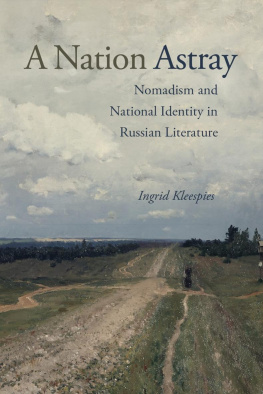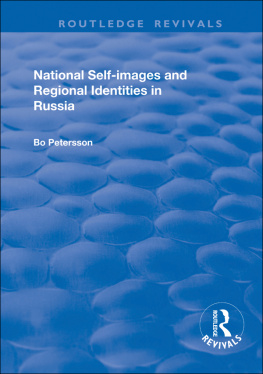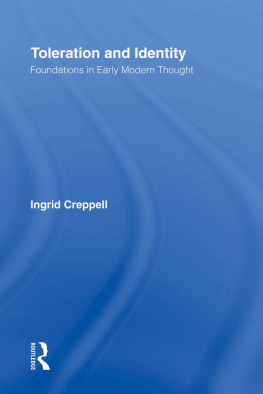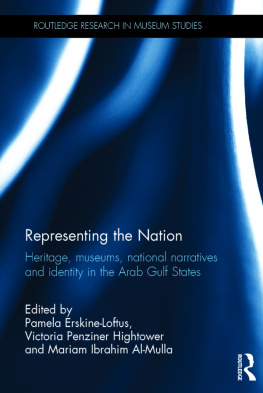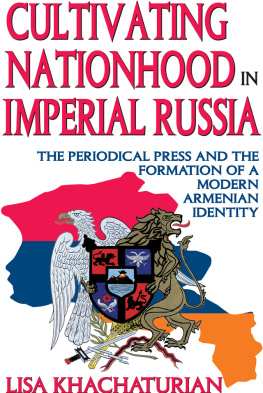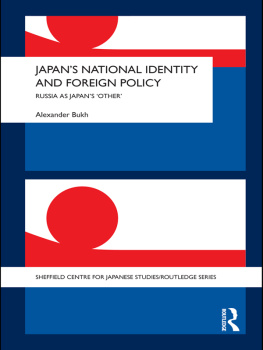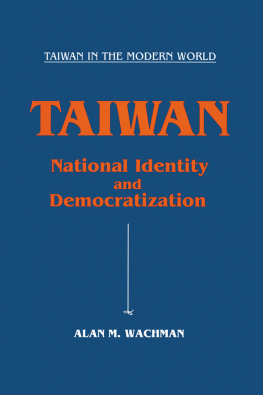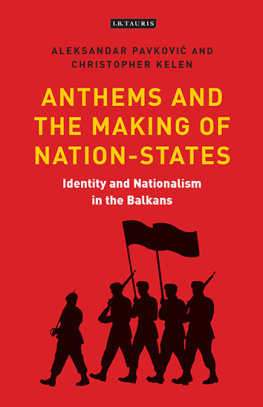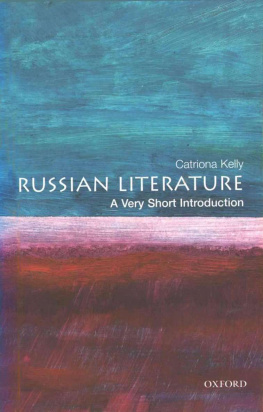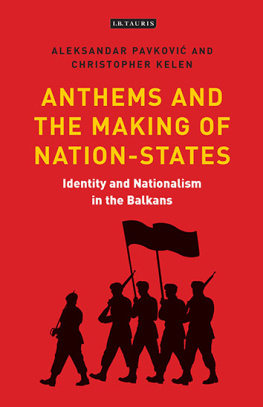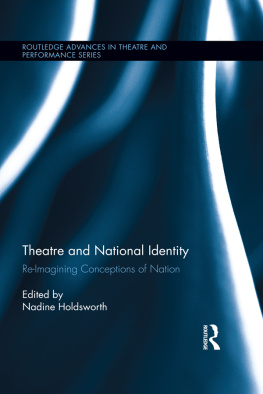2012 by Northern Illinois University Press
Published by the Northern Illinois University Press, DeKalb, Illinois 60115
Manufactured in the United States using acid-free paper
All Rights Reserved
Design by Shaun Allshouse
Library of Congress Cataloging-in Publication Data
Kleespies, Ingrid.
A nation astray : nomadism and national identity in Russian literature / Ingrid Kleespies.
pages ; cm
Includes bibliographical references and index.
ISBN 978-0-87580-461-3 (cloth) ISBN (invalid) 978-1-60909-076-0 (electronic)
1. Russian literature19th centuryHistory and criticism. 2. Nomads in literature. 3. Travelers in literature. 4. National characteristics, Russian, in literature. 5. Karamzin, Nikolai Mikhailovich, 17661826. Pisma russkogo puteshestvennika. 6. Dostoyevsky, Fyodor, 18211881. Zimnie zametki o letnikh vpechatleniiakh. 7. Chaadaev, P. IA. (Petr IAkovlevich), 17941856. Lettres philosophiques. 8. Goncharov, Ivan Aleksandrovich, 18121891Criticism and interpretation. 9. Pushkin, Aleksandr Sergeevich, 17991837Criticism and interpretation. 10. Herzen, Aleksandr, 18121870Criticism and interpretation. I. Title.
PG3015.5.N66K54 2012
891.7093526918dc23
2012030637
The glamour of youth enveloped his parti-coloured rags, his destitution, his loneliness, the essential desolation of his futile wanderings. For monthsfor yearshis life hadnt been worth a days purchaseand there he was, gallantly, thoughtlessly alive, to all appearance indestructible solely by the virtue of his few years and of his unreflecting audacity.
Joseph Conrad, Heart of Darkness
Contents
Tracing the Topos of the Eternal Russian Traveler
Karamzins Letters of a Russian Traveler and Dostoevskys Winter Notes on Summer Impressions
:
Chaadaevs Wayward Russia
Capturing the Trace of an Errant History
A Poet Astray
Pushkin and the Image of a Nomadic Wanderer
A Journey around the World by I. Oblomov
Goncharovs Unlikely Eternal Russian Traveler
A Radical at Large
Alexander Herzen and the Autobiography of a Russian Wanderer
I would like to convey my gratitude to the many colleagues and friends who have contributed to the completion of this book. The idea for it was conceived while I was a graduate student at the University of California, Berkeley; thus my first thanks and largest debt are to the illustrious faculty there who set me on the path of writing this project: Harsha Ram, Olga Matich, David Frick, Anne Nesbet, Yuri Slezkine, Viktor Zhivov, Joachim Klein, and, for more inspiration, encouragement, and assistance than I can possibly express, Irina Paperno. This book was largely completed while teaching at the University of Florida, and I owe a tremendous debt of gratitude to my many kind and generous colleagues there, but especially to Michael Gorham, Galina Rylkova, and Barbara Mennel for their tireless support of both the moral and practical variety. This project has benefited greatly over the years from conversations and collaboration with many wonderful and valued colleagues, among them: Sara Dickinson, Anne Dwyer, Katya Hokanson, Anne Lounsbery, John Randolph, Valeria Sobol, Gitta Hammarberg, Michael Kunichika, Jenny Kaminer, Victoria Somoff, Luba Golburt, Avram Brown, Anne Eakin Moss, Lynn Patyk, Stuart Finkel, Boris Wolfson, Christopher Caes, and James Goodwin. I would also like to thank the editors Amy Farranto and Susan Bean at Northern Illinois University Press for their assistance and support throughout the publication process, as well as the anonymous readers for their most valuable comments and suggestions.
I owe special thanks to Anne Dwyer, Kirsten Rodine Hardy, Deborah Yalen, and Lisa Zwicker for their abiding friendship and intellectual companionship over the years and across many milestones. My deepest gratitude is to my husband, Conor ODwyer, whose patience, support, marvelous reading and editing abilities, and calm in moments of crisis have done much to make this book possible. I dedicate it to him and to my son, Declan.
I am indebted to the Center for the Humanities and the Public Sphere at the University of Florida and the former Center for Slavic and East European Studies (now the Institute of Slavic, East European, and Eurasian Studies) at the University of California, Berkeley for their generous financial assistance at various stages of this project. My work has benefited from access to valuable resources at the Houghton Library at Harvard University and the Slavic Library at the Czech National Library in Prague. I am grateful to the State Tretyakov Gallery in Moscow for permission to reprint Isaak Levitans painting Vladimirka (1892) on the cover of this book.
An earlier version of Chapter 1 was published as Caught at the Border: Travel, Nomadism, and Russian Identity in Karamzins Pisma russkogo puteshestvennika and Dostoevskiis Zimnie zametki o letnikh vpechatleniiakh in the Slavic and East European Journal 50.2 (2006): 23151. Material from Superfluous Journeys: A Reading of Onegins Journey and A Journey around the World by I. Oblomov, Russian Review 70.1 (2011): 2042, appears in revised form in Chapter 4, and a modified version of the second half of Chapter 4 has been published as Russias Wild East? Domesticating the Siberian Frontier in Fregat Pallada in the Slavic and East European Journal 56.1 (2012): 2137.
Even today these homeless Russian wanderers continue their wandering; they will not disappear, it seems, for a long time yet. And if in our time these wanderers no longer go to Gypsy camps to search in that wild, distinctive way of life for universal ideals, nor look for respite from the contradictory and absurd life of our Russian intelligentsia [] in the bosom of nature, then, all the same [] they go with new faith towards another field and work on it enviably, believing [], that in their fantastical endeavor they will reach their goals and will attain not only personal, but universal, happiness.
F. M. Dostoevsky, Pushkin
The lines above come from Dostoevskys famous 1880 Pushkin Speech, delivered in Moscow at the first public commemoration of Pushkin in Russia since the poets death in 1837. The Pushkin Jubilee, as it was known, was a highly significant literary and historical event, one that reveals a great deal about the role of literatureand writersin nineteenth-century Russia. Pushkin had died at odds with the authorities and at an apparent low point in his literary career; the government made his funeral a restrained affair for fear that allowing a massive outpouring of grief might serve as a catalyst to liberal protest or even outright rebellion. Almost fifty years later, the three-day jubilee in 1880 was the long-overdue acknowledgment of Pushkins foundational role in Russian arts and letters; those present experienced it as a major historical happening. Unexpectedly, it was Dostoevskys speech, presented on the last day and at the very height of his own career, that became the cornerstone of the event. The speech, in which Dostoevsky celebrated Russian distinctiveness through the lens of Pushkin (both the man and his oeuvre) and avowed Pushkins genius to the world, incited jubilant pandemonium and even fits of hysteria in the receptive crowd. In this epic meeting between two of Russias greatest writers, Dostoevsky turned on its head the familiar critique of Russian elite culture as derivative of the West, proclaiming instead that Russias capacity for cultural imitation was in fact a special form of national genius: one of appropriation and transformation. Russia, he argued, appropriated the best products of other cultures and transformed them into something new and superior. His speech championed Pushkin, construed as simultaneously the most European and the most Russian of Russian poets, as a protean Russian chameleon extraordinaire, one who not so much imitated as brilliantly outperformed all others in any and all European literary forms. Less immediately apparent, but of crucial importance to the impact of the speech, is Dostoevskys introduction of the term Russian wandere r ( russkii skitalets ). Dostoevsky gave name to a powerful motif in Russian culture here, and this motifor discursive phenomenonis the subject of this book.

